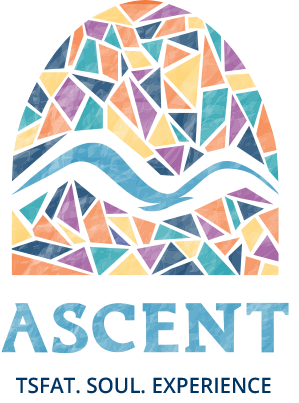KabbalaOnline.org Ki Tissa 5783 The Holy Zohar Insights on the Torah Reading
KabbalaOnline.org Ki Tissa 5783 The Holy Zohar Insights on the Torah Reading
Please Note: The bold text is the direct
translation of the classic text source.
The regular text is the explanation of the editor/translator
Traveling Blues
The Zohar

This Torah
reading mentions the building of the Tabernacle in the desert. This tent was the
symbol of the closeness of G‑d
to His people, and this glorious period was in many ways a taste of the
ultimate redemption. Rebbe
Yossi and Rebbe Chiya were traveling and discussing Torah and dwelt on this topic, as well the long
Exile the Jewish people are still in.
Rabbi
Yossi said [to Rabbi Chiya that] all that you have said [about how
extended the period of Exile will be] is correct. Nevertheless, what will
enable Israel
to endure this exile? It is all those promises that the Holy One Blessed be He
has promised them. We have learned that that when they enter synagogues and
study halls and see all those words of comfort [of the prophets], this
gladdens their hearts and will enable them to bear all the suffering that is
coming to them.
Rabbi
Chiya agreed saying, "Certainly this is the case, but everything depends
on returning to the spiritual source/ teshuva. Now if you say that right now we
can arouse all Israel as one to do teshuva[and
thereby bring forward the ultimate redemption] we can not. What is the
reason that we can't? It is because it is written: And it shall come to
pass, when all these things have come upon you, the blessing and the curse,
which I have set before you, you shall call them to mind [while] among
all the nations, where G‑d your Lord has driven you. And you will return to G‑d,
and shall obey His voice. (Deut.
30:1). And then it is written: "If your outcasts have been
driven out to the farthest parts of heaven, from there will the Lord your G‑d
gather you, and from there He will fetch you." (Ibid.
4). Until all these things come to pass, they will not be able to arouse
themselves to do teshuva.How blocked are all
the roads and paths for all the sons of exile…
Rabbi
Yossi said, "How blocked are all the roads and paths [leading
to teshuva] for all the sons of exile. They have not been left an
opening [to quicken the redemption], and if so they will be in exile as
they were in each and every generation. They want neither to suffer the yoke of
the exile, nor [to wait for] its reward. They abandoned the laws of the
Torah and assimilated with the other nations."
[Rabbi
Yossi] opened his explanation [of this phenomenon] with the verse:
"Like a pregnant woman who draws near to the time of her delivery is in
pain and cries out in her birth pangs, so have we been in your sight G‑d."
(Isaiah
26:17). Why [are we likened to] a pregnant woman? It is
normal for a pregnant woman to give birth after a full nine months. There are
nevertheless those in the world who give birth within one or two days of
reaching their ninth month. Now all of the contractions and [related]
sufferings of a pregnant woman are in the ninth month, and even if only one day
of the ninth month has passed, she is regarded as having had a full nine-month
pregnancy. In the same way Israel, because they tasted the flavor of exile, if
they return in teshuva, it would be counted for them as though they had
suffered all of those reproofs that are written in the Torah. How much more so
after so much suffering that has overtaken them from the day that the exile
started.
In the light of the sufferings generated upon the Jewish people
in their exile, teshuva would certainly bring the redemption quickly.
Zohar, pg.
188b; translation and commentary by Simcha-Shmuel Treister
Copyright
2003 by KabbalaOnline.org. All rights reserved, including the right to
reproduce this work or portions thereof, in any form, unless with permission,
in writing, from Kabbala
Online.
Rabbi Shimon bar
Yochai, also know by the acronym "Rashbi," lived in the Holy Land in
the 2nd century C.E. A disciple of Rabbi Akiva, Rashbi played a key role in the
transmission of Torah, both as an important Talmudic sage and as author of the
Zohar, the most fundamental work of Kabbalah. He was buried in Meron, Israel,
west of Safed.
Shmuel-Simcha Treister is a lawyer from New Zealand who made aliya to Safed
with his family in 1993 to study Zohar. He continues doing so to this day. He
also works in the Ascent multi-media center.
The Zohar is a
basic work of Kabbalah authored by Rabbi Shimon bar Yochai and his students
(2nd century CE). English translation of annotated selections by Rabbi Moshe
Miller (Morristown, N.J.: Fiftieth Gate Publications, 2000) includes a detailed
introduction covering the history and basic concepts of Kabbalah. Volume 1 (36
pp.) covers the first half of the first of the original’s three volumes.
More
from Rabbi Shimon bar
Yochai | RSS
|
Click on
Subscribe to receive any of our free newsletters in your email. |
“I Love You, Ascent!”
is the new online Facebook community for Ascent’s friends and alumni.
It’s free, join us today:
bit.ly/loveascent - interact, have fun, or just hangout! See you
there :)
|
Donate here for US tax benefits Donate here for UK tax benefits Donate here for Israel tax benefits |
|
KabbalaOnline.org is a project
of Ascent of Safed Free to study all Jewish Scripture:
|
|



Comments
Post a Comment